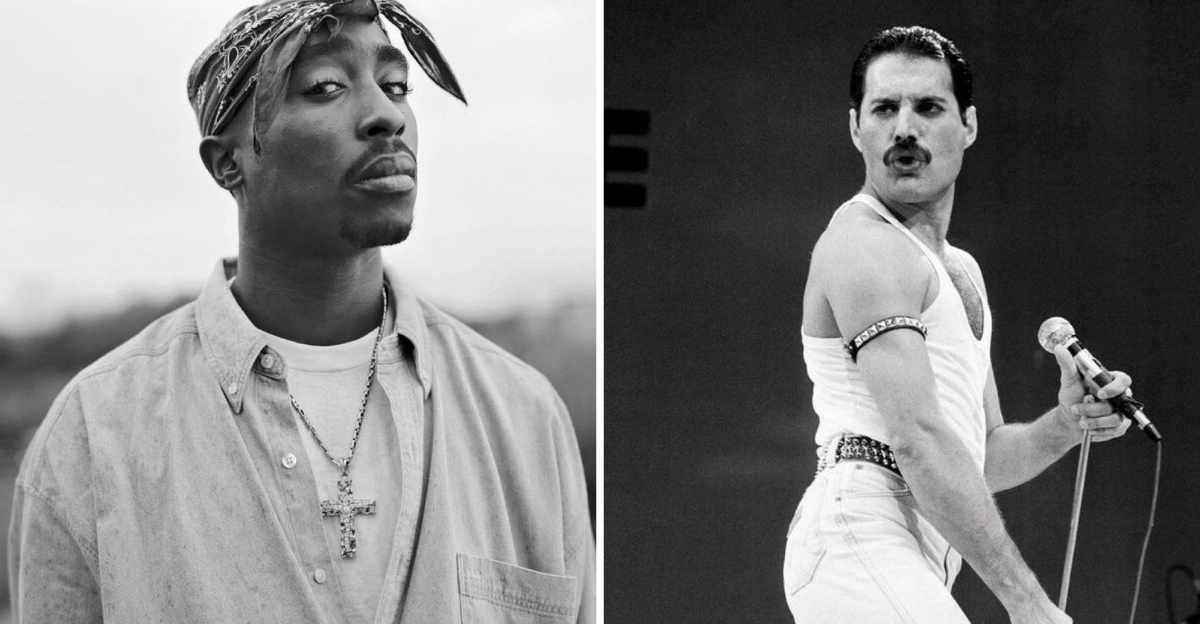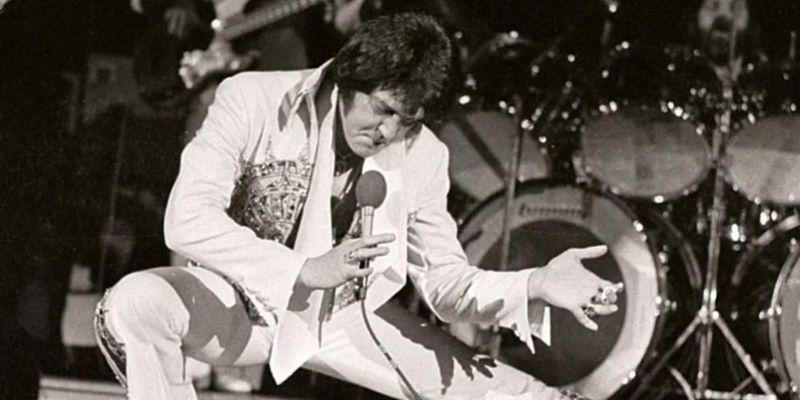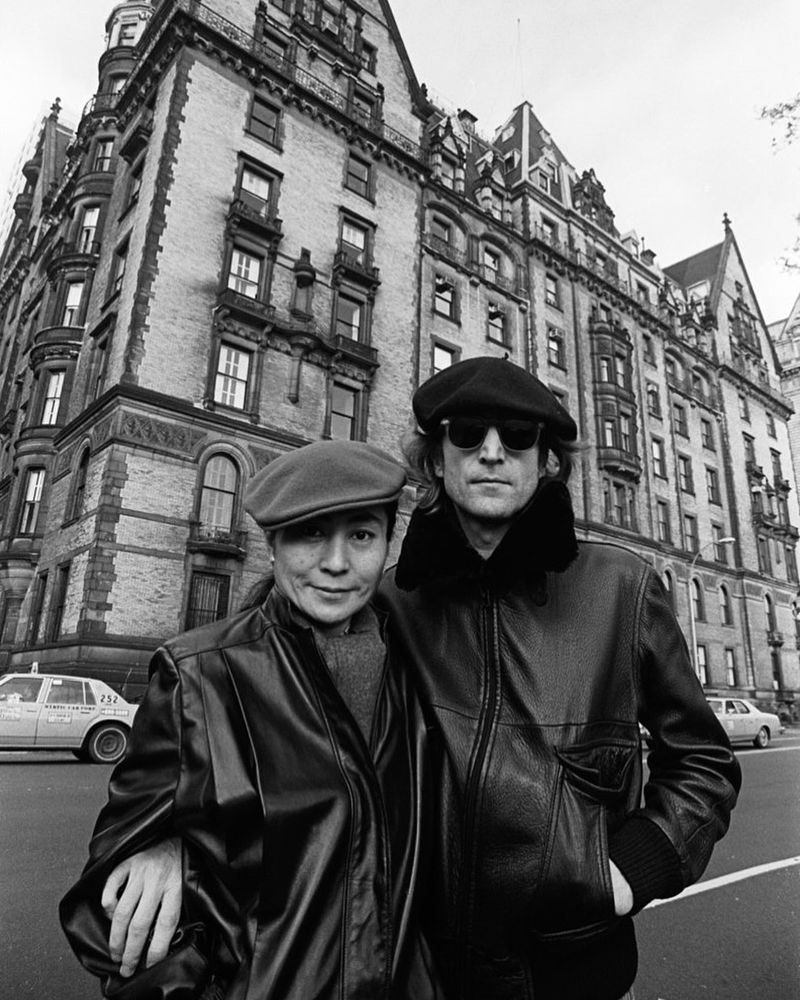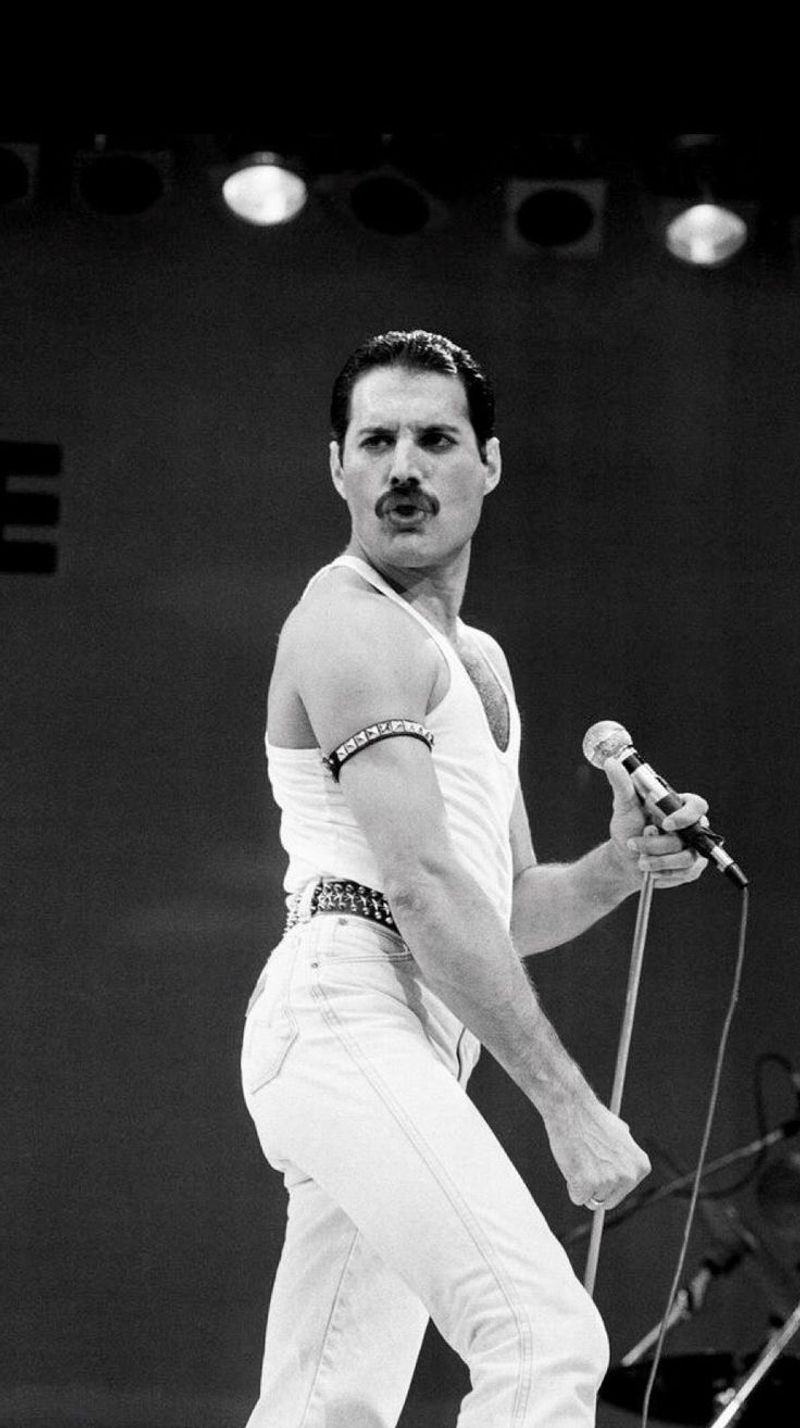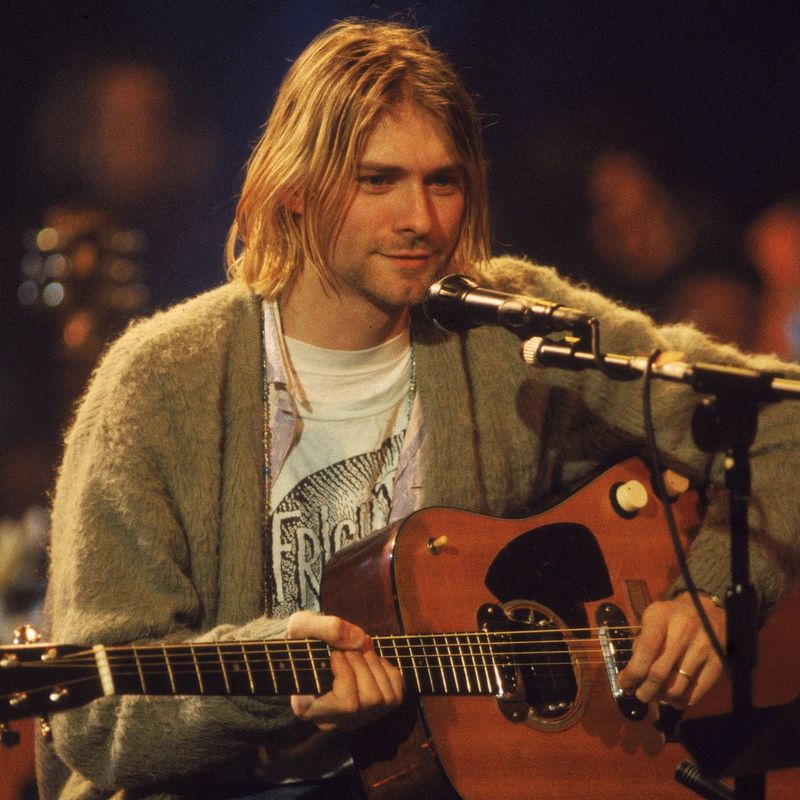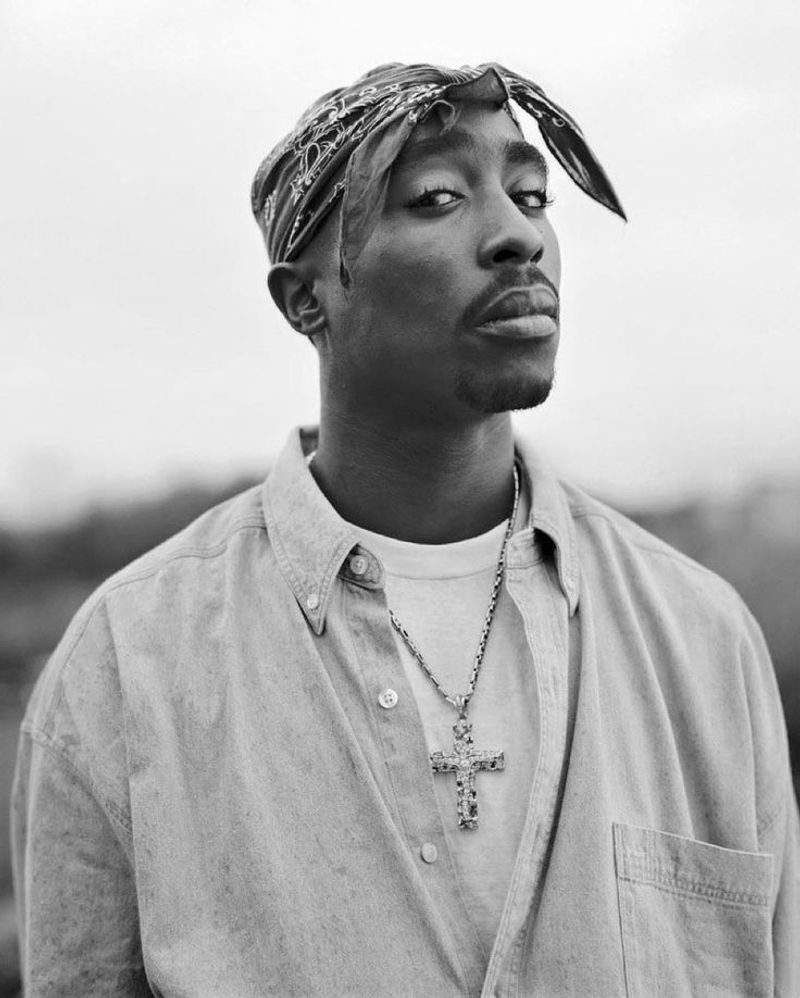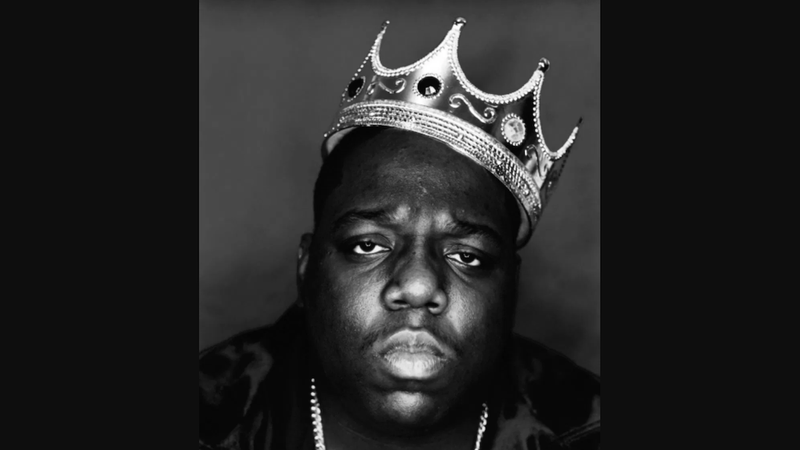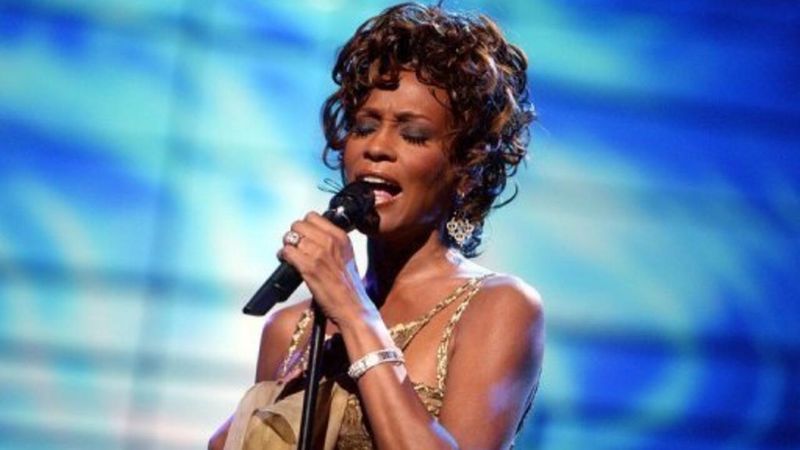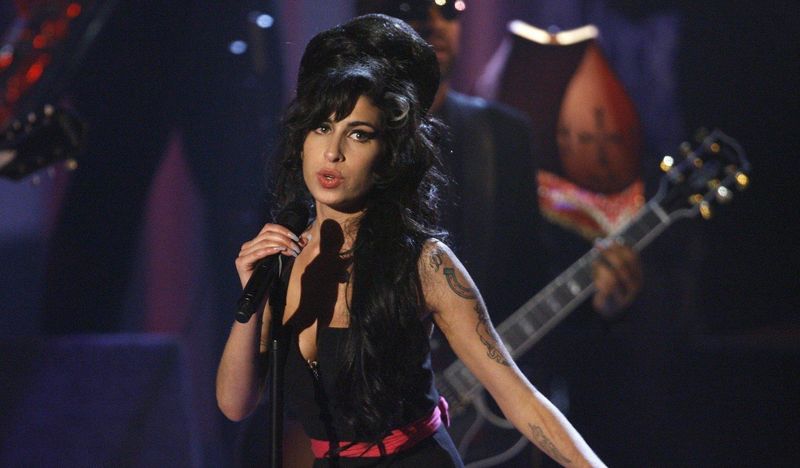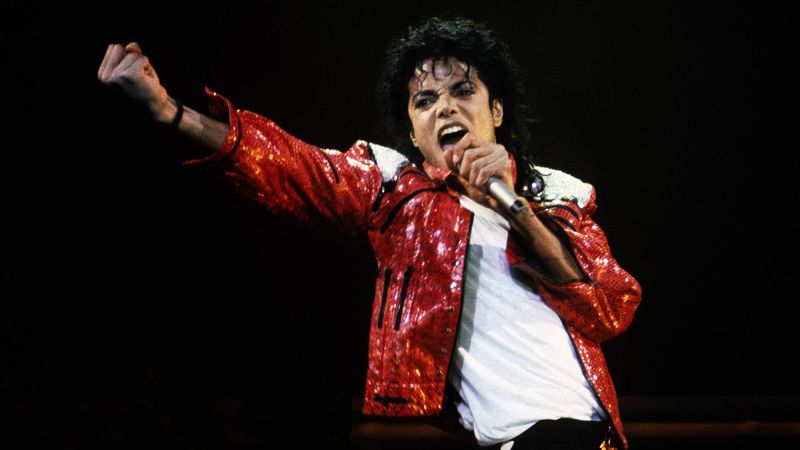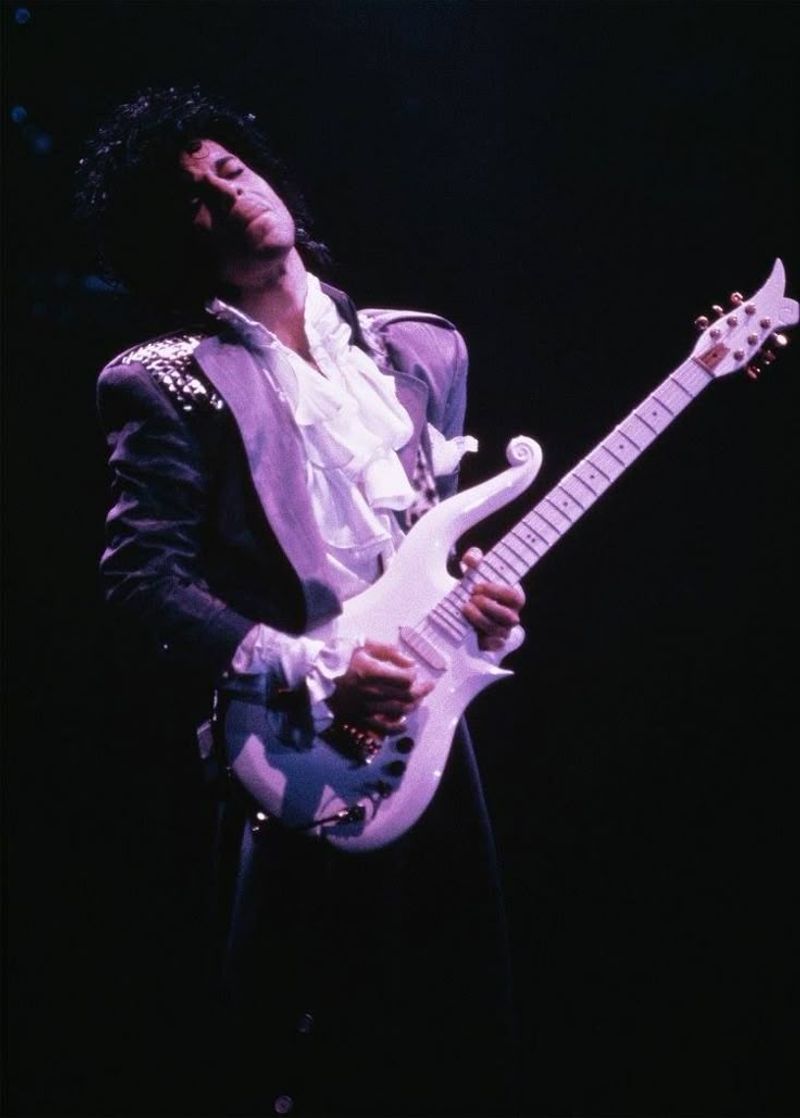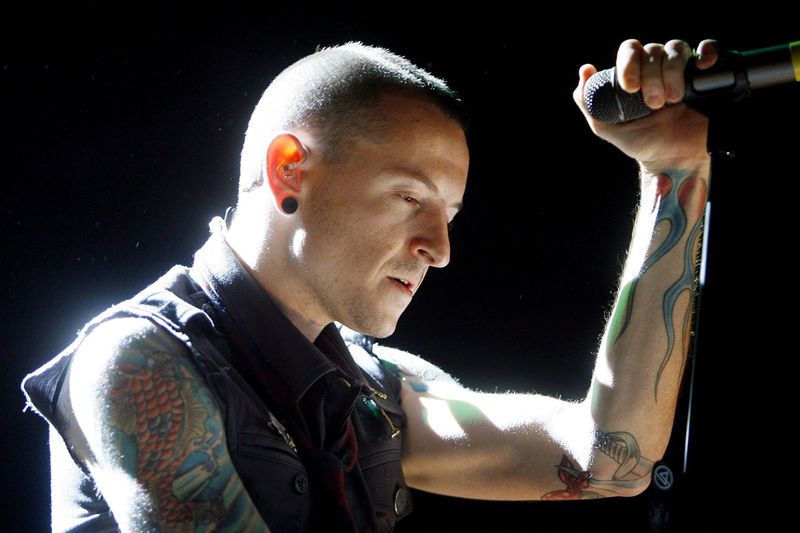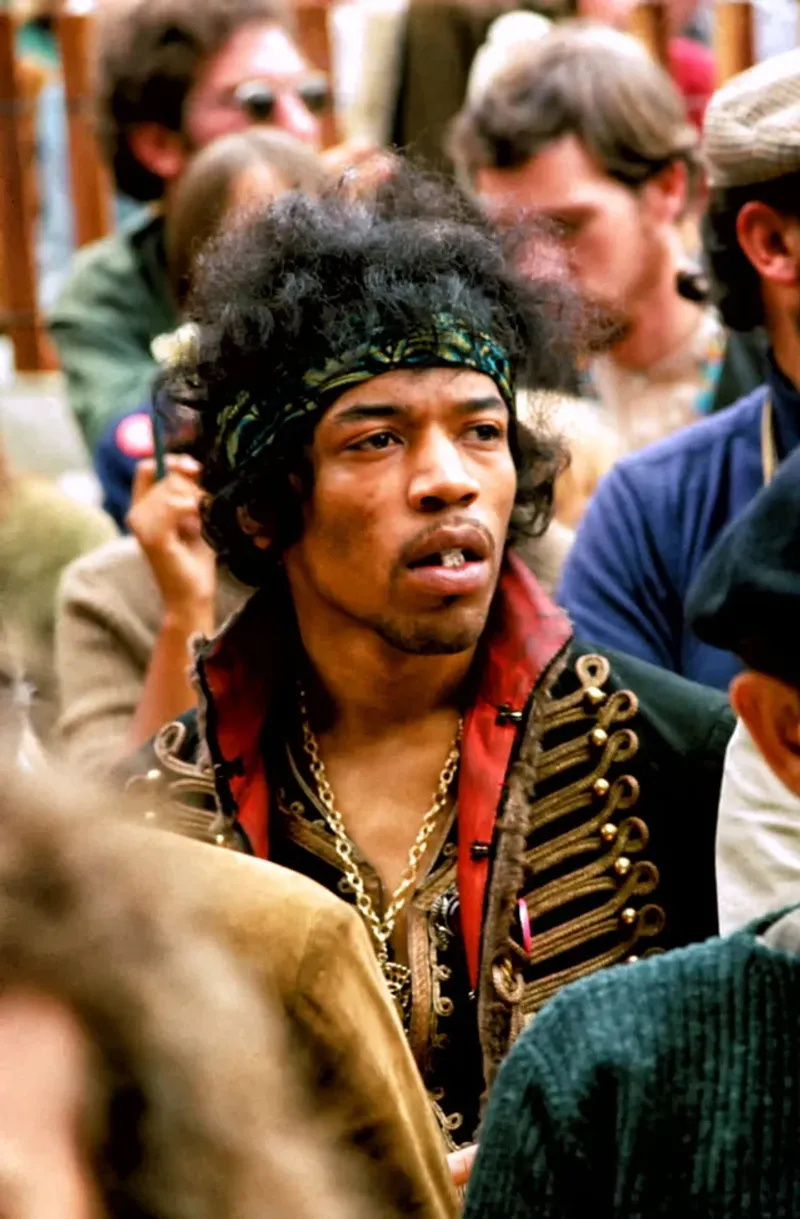Music has the power to bring us together, to help us process emotions, and to mark significant moments in our lives. When a beloved musician dies, it feels like losing a friend who’s been with us through good times and bad. Their voices, suddenly silenced, leave a void that recordings can’t quite fill. These fifteen musicians left us too soon, but their legacies continue to shape music and culture around the world.
1. Elvis Presley: The Day The King Left The Building
August 16, 1977 marked the end of an era when Elvis Presley was found unresponsive in his Graceland bathroom. At just 42, the hip-swiveling, smooth-talking boy from Tupelo who revolutionized music was gone.
His death triggered unprecedented public mourning, with over 30,000 fans flocking to Memphis to say goodbye. Though officially ruled a heart attack, years of prescription drug abuse had taken their toll on the once-vibrant performer.
Elvis never performed overseas except for brief appearances in Canada, yet his music reached every corner of the globe. His final words were reportedly “I’m going to the bathroom to read,” a mundane end for a most extraordinary life.
2. John Lennon: Imagine All The People
Five gunshots outside the Dakota apartment building in New York City forever silenced one of music’s most revolutionary voices. John Lennon, 40, was returning home with Yoko Ono when Mark David Chapman, a disturbed fan who had asked for Lennon’s autograph earlier that day, murdered the former Beatle.
The December 8, 1980 killing prompted worldwide vigils as fans struggled to process this senseless act of violence. Radio stations went silent or played Beatles songs continuously for days.
Lennon had just emerged from a five-year musical hiatus with his album “Double Fantasy,” making his death all the more cruel. His message of peace lives on through his music.
3. Freddie Mercury: The Show Must Go On
Just one day after publicly confirming his AIDS diagnosis, Freddie Mercury passed away on November 24, 1991. The Queen frontman’s four-octave vocal range fell silent at 45, ending a career that redefined what rock performances could be.
Mercury kept his illness private until the very end, continuing to record even as his health deteriorated. His band members helped him complete his final vocals, sometimes recording just a line or two at a time as his strength allowed.
The 1992 tribute concert at Wembley Stadium featured music legends from David Bowie to Elton John honoring Mercury’s legacy. His death significantly raised AIDS awareness during a time when stigma surrounding the disease was at its peak.
4. Kurt Cobain: The Voice Of A Disenchanted Generation
Found in his Seattle greenhouse on April 8, 1994, Kurt Cobain’s suicide at 27 left a generation without its reluctant spokesman. The Nirvana frontman’s raw, gravelly voice had articulated the angst and disillusionment of Generation X like no other.
His suicide note quoted Neil Young’s lyric “it’s better to burn out than to fade away,” a haunting glimpse into his troubled mind. Cobain’s struggles with heroin addiction, chronic stomach pain, and the pressures of sudden fame created a perfect storm of despair.
The Seattle grunge scene never fully recovered from losing its brightest star. Cobain’s widow, Courtney Love, read parts of his suicide note aloud at a public memorial where thousands gathered to mourn the fallen icon.
5. Tupac Shakur: Flames To Phoenix
Six days after being shot four times in a drive-by shooting in Las Vegas, Tupac Shakur died on September 13, 1996. The 25-year-old rapper had just attended a Mike Tyson boxing match with Death Row Records founder Suge Knight when their car was ambushed at a red light.
His murder remains officially unsolved, spawning countless conspiracy theories and even claims that he faked his death. Tupac’s prolific work ethic meant that several albums were released posthumously, fueling speculation about his fate.
Beyond his gangsta rap persona, Tupac was a gifted poet and actor whose work explored social inequality, racism, and inner-city struggles. His influence on hip-hop culture and his examination of the Black experience in America continue to resonate decades after his death.
6. The Notorious B.I.G.: Sky’s The Limit
Brooklyn lost its favorite son when Christopher Wallace, known as The Notorious B.I.G. or Biggie Smalls, was gunned down in Los Angeles on March 9, 1997. The 24-year-old rapper was leaving a music industry party when another vehicle pulled alongside his SUV and fired multiple shots.
His murder, coming just six months after Tupac Shakur’s death, intensified the East Coast-West Coast hip-hop rivalry narrative in the media. Like Tupac’s case, Biggie’s murder remains unsolved despite numerous investigations.
Biggie’s storytelling abilities and smooth flow revolutionized rap. His second album, “Life After Death,” was released sixteen days after his murder and debuted at number one on the Billboard charts, a bittersweet testament to his talent cut short.
7. Whitney Houston: The Voice That Touched The Heavens
Grammy weekend turned tragic when Whitney Houston was found submerged in a Beverly Hilton hotel bathtub on February 11, 2012. The 48-year-old vocal powerhouse, who had struggled publicly with substance abuse, died from drowning with heart disease and cocaine use listed as contributing factors.
Her death cast a shadow over the Grammy Awards ceremony the following night, where Jennifer Hudson performed a heartbreaking tribute. Houston’s funeral at New Hope Baptist Church in Newark, where she first sang as a child, was broadcast globally.
Houston sold over 200 million records worldwide and holds the Guinness World Record for most awarded female artist of all time. Her cover of Dolly Parton’s “I Will Always Love You” remains one of the best-selling singles in music history.
8. Amy Winehouse: Back To Black
Found lifeless in her London apartment on July 23, 2011, Amy Winehouse became the latest member of the tragic “27 Club.” The British soul singer with the distinctive beehive hairstyle and cat-eye makeup died from alcohol poisoning after years of substance abuse struggles.
Her father established the Amy Winehouse Foundation to prevent young people from misusing drugs and alcohol. Despite releasing only two albums during her lifetime, Winehouse’s influence on music was immense, paving the way for artists like Adele and Duffy.
Footage from the documentary “Amy” shows her idol, Tony Bennett, describing her as one of the finest jazz vocalists he’d ever heard. Her album “Back to Black” became the UK’s best-selling album of the 21st century at the time of her death.
9. Michael Jackson: The Day The Music Stopped
June 25, 2009 brought shocking news: Michael Jackson, the King of Pop, was dead at 50. Preparing for his comeback “This Is It” tour, Jackson suffered cardiac arrest induced by propofol, a powerful anesthetic improperly administered by his personal physician, Conrad Murray.
Global grief manifested in unprecedented ways. Memorial services occurred worldwide, internet traffic spiked so dramatically that Google thought it was under attack, and his music dominated charts for months afterward.
Jackson’s controversial personal life often overshadowed his humanitarian efforts and musical genius. He holds the Guinness World Record for most successful entertainer of all time, having sold an estimated 400 million records worldwide and revolutionized music videos with “Thriller.”
10. Prince: When Doves Cry
Found unresponsive in an elevator at his Paisley Park compound on April 21, 2016, Prince Rogers Nelson left behind a musical legacy as colorful and complex as the man himself. The 57-year-old musical genius died from an accidental overdose of fentanyl, a powerful synthetic opioid.
Purple rain fell metaphorically around the world as landmarks from the Eiffel Tower to the New Orleans Superdome were lit in his signature color. His death revealed the private struggles of a fiercely independent artist who reportedly suffered chronic pain from years of energetic performances.
Prince’s vault at Paisley Park contained thousands of unreleased songs and complete albums. A vegetarian since the late 1970s, he rarely discussed his charitable work, which included anonymous donations to solar power projects and inner-city schools.
11. Avicii: Wake Me Up When It’s All Over
The electronic dance music community was devastated when Tim Bergling, known professionally as Avicii, took his own life on April 20, 2018. Found dead in Muscat, Oman at just 28, the Swedish DJ had retired from touring two years earlier, citing health concerns and anxiety.
His family later released a statement saying “he could not go on any longer” and that “he wanted to find peace.” The documentary “Avicii: True Stories” revealed the immense pressure he faced, performing 813 shows in eight years while battling physical and mental health issues.
Bergling’s death sparked important conversations about mental health in the music industry. His parents established the Tim Bergling Foundation to support suicide prevention and mental health awareness, ensuring his legacy extends beyond his chart-topping hits.
12. Chester Bennington: One More Light
The world of rock was shaken when Chester Bennington, Linkin Park’s frontman, died by suicide on July 20, 2017. Found hanged at his California home, the 41-year-old’s death occurred on what would have been his friend Chris Cornell’s 53rd birthday, who had died by suicide just two months earlier.
Bennington had been open about his struggles with depression, substance abuse, and the childhood trauma of sexual abuse. His raw, emotional vocals gave voice to inner pain that resonated with millions of fans across generations.
His widow, Talinda Bennington, launched the mental health awareness campaign #320ChangesDirection in his memory. Linkin Park’s last performance with Chester was on July 6, 2017, where he performed “One More Light,” a song about the loss of a friend.
13. Selena: The Rose Cut Too Soon
March 31, 1995 brought heartbreaking news to the music world: Selena Quintanilla-Pérez, the Queen of Tejano music, was murdered by her fan club president and boutique manager, Yolanda Saldívar. Shot at a Days Inn motel in Corpus Christi, Texas, the 23-year-old Grammy winner died from blood loss at the hospital.
Her death triggered unprecedented mourning in the Latino community. Over 60,000 people attended her viewing, and sales of her albums soared, introducing her music to a wider audience posthumously.
Selena was on the verge of major crossover success, recording her first English-language album when she died. Her biopic starring Jennifer Lopez launched the actress’s career and introduced Selena’s story to new generations. Her family continues to celebrate her legacy through music releases and the annual Fiesta de la Flor festival.
14. Jimi Hendrix: Purple Haze
Rock’s most innovative guitarist was found unresponsive in a London apartment on September 18, 1970. Jimi Hendrix, just 27, had asphyxiated after taking barbiturates and aspirating on his own vomit, joining what would later be known as the “27 Club.”
Though his mainstream career lasted only four years, Hendrix revolutionized electric guitar playing. His feedback-drenched rendition of “The Star-Spangled Banner” at Woodstock remains one of music’s most powerful political statements.
A left-hander who played right-handed guitars upside down, Hendrix created sounds previously thought impossible. Before fame, he worked as a backing guitarist for Little Richard and The Isley Brothers. The Jimi Hendrix Experience was inducted into the Rock and Roll Hall of Fame in 1992, cementing his lasting influence on generations of guitarists.
15. Dolores O’Riordan: The Haunting Voice Silenced
The ethereal voice behind The Cranberries was silenced forever when Dolores O’Riordan drowned in a London hotel bathtub on January 15, 2018. The 46-year-old Irish singer, who had struggled with bipolar disorder and alcohol use, was found submerged while intoxicated, her death ruled accidental.
O’Riordan’s distinctive vocal style—alternating between gentle lilting and powerful yodeling—made songs like “Zombie” and “Linger” instantly recognizable. Her lyrics often addressed political issues, particularly The Troubles in Northern Ireland.
At the time of her death, O’Riordan was in London for a recording session, showing her continued commitment to music. The Cranberries’ final album, “In the End,” featuring vocals she had already recorded, was released posthumously in 2019 and earned a Grammy nomination.
